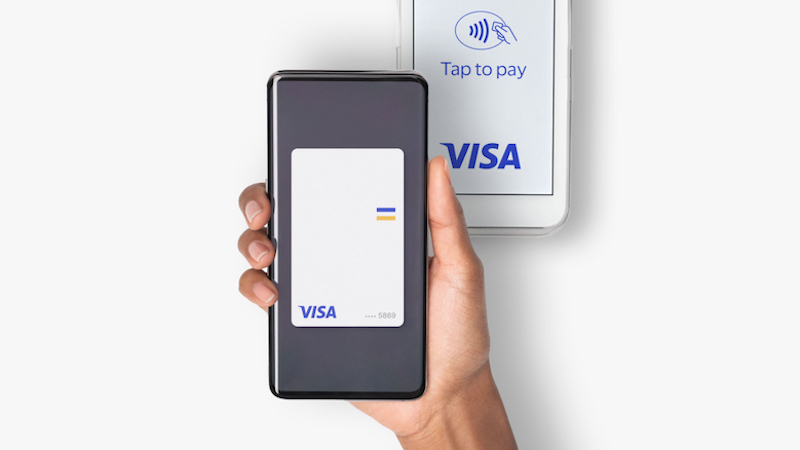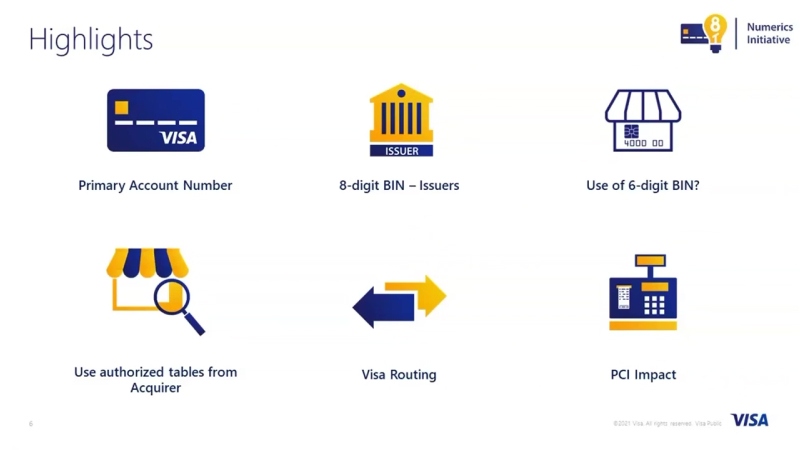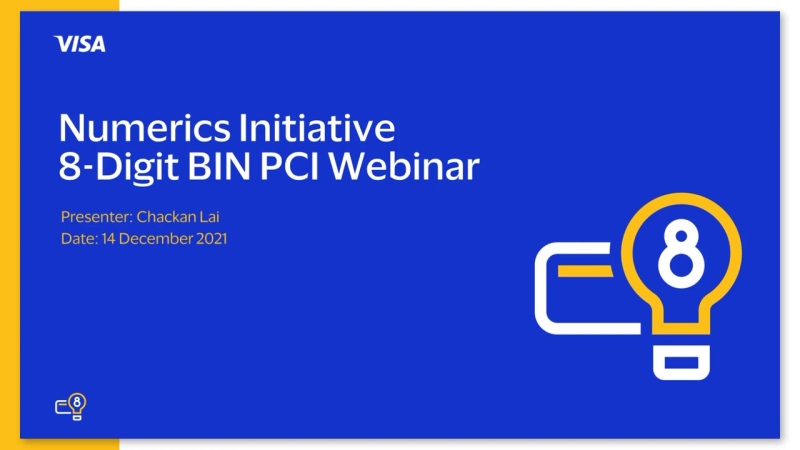-
Eight-digit BIN Industry Change
The eight-digit BIN industry change is here. Make sure your business is ready.


Why did the payment industry adopt the eight-digit BIN standard?
The International Organization for Standardization (ISO) eight-digit BIN (Bank Identification Number) standard provides additional BINs for future use, allowing the payment industry to continue to innovate and grow well in the future. Visa, in partnership with a diverse group of stakeholders in the payments ecosystem, has expanded the length of Bank Identification Numbers (BINs) on the Visa system from six to eight digits. Since Visa is now only assigning eight-digit BINs for new payment credentials, it is imperative that every part of the payments chain is ready to process six- and eight-digit BINs.
Impacts of the new eight-digit BIN standard
Merchant impacts
As more stakeholders adopt eight-digit BINs, it is no longer possible to rely on the first six digits of the PAN for authorisation, routing and transaction clearing. It is critical to assess the impacts of this change with your acquirer, processor, vendors and other partners that support your transaction processing, routing and downstream activities. If you are using six-digit BINs for the following activities, at a minimum, you need to determine how the BIN expansion will impact your back-end systems:
- Identification of card product types for certain merchandise restrictions
- Fraud and/or chargeback analytics
- Issuer identification
- Routing, if applicable to your region and if referenced at the BIN level in lieu of the account range
- Unique BIN range identification (e.g., fleet cards, specific corporate card types, benefits cards)
- Cash back qualification
- Optimisation of approval rates and authorisation analysis
Recommended impact assessments include:
- Detail how the issuing BIN is used in your own POS environment and adjust any logic that is based solely on the first six digits to also accommodate the first eight digits (at a minimum).
- Assess downstream system impacts (e.g., loyalty, billing, reporting, fraud management, etc.) and make the necessary changes to accommodate the longer BIN length.
- Conduct testing to confirm seamless operations and downstream processes.
- Confirm your ability to process transactions with your processor and complete downstream activities regardless of the BIN length.
- Ensure BIN table information only comes from reliable sources (e.g., your acquirer or registered entities) that receive information directly from Visa (e.g., Visa BIN Attribute Sharing Service).
Merchant resources
In this webinar, you will learn about Visa’s guidance for the International Organization for Standardization (ISO) eight-digit BIN industry change and what merchants should do to adapt.

We recommend that merchants engage and assess impacts across their organisation as soon as possible to maximise efficiencies and avoid surprises. The following documents will provide more information on the processes you may need to change to adapt to the new eight-digit BIN standard.
PCI compliance impacts
To better understand the implications of the Payment Card Industry Security Standards Council (PCI SSC) requirements and how they may or may not impact the eight-digit BIN standard, we suggest you review this webinar:

Get the full picture on PCI Compliance for eight-digit BINs with the following resources:
Need additional support?
Contact your Visa representative to learn how Visa Consulting and Analytics can help you evaluate your eight-digit BIN strategy.

